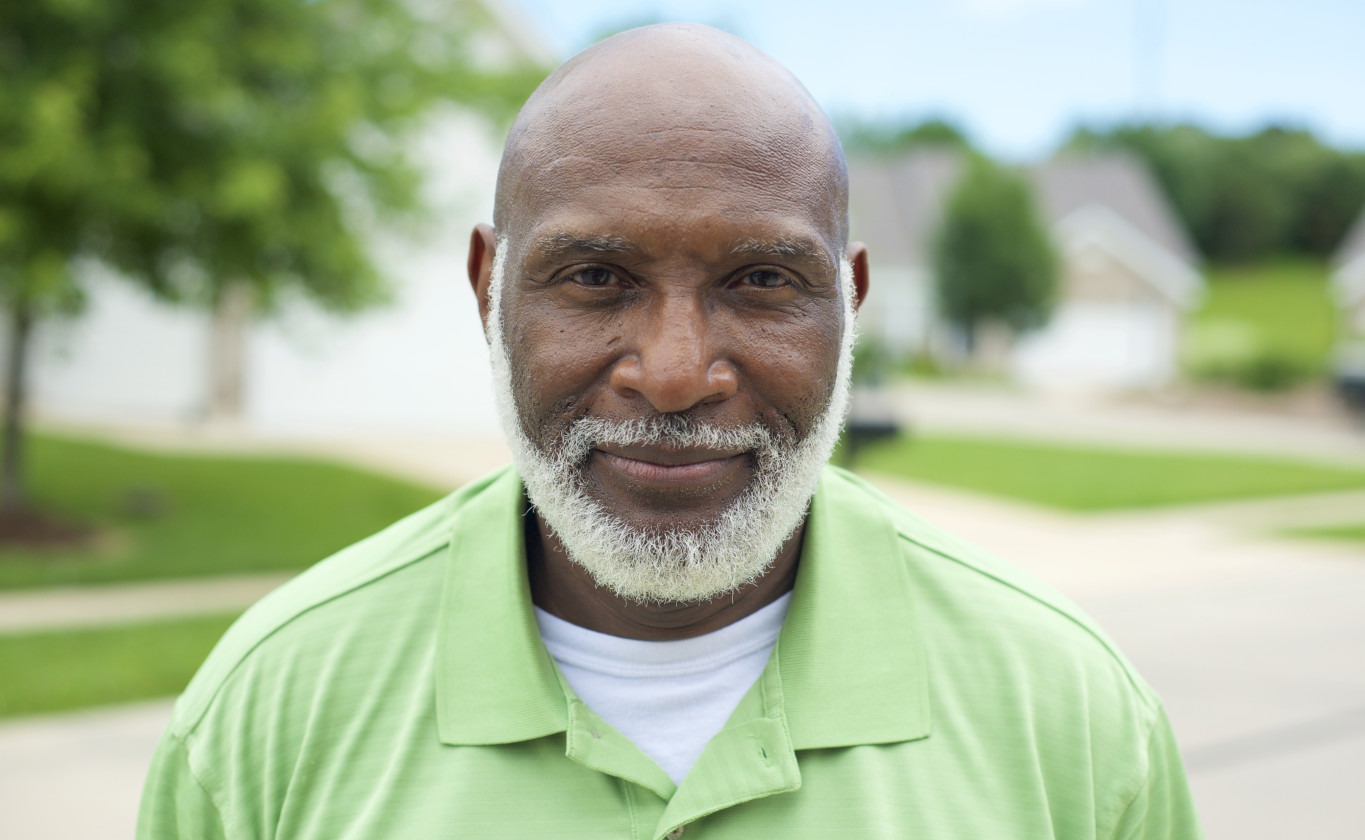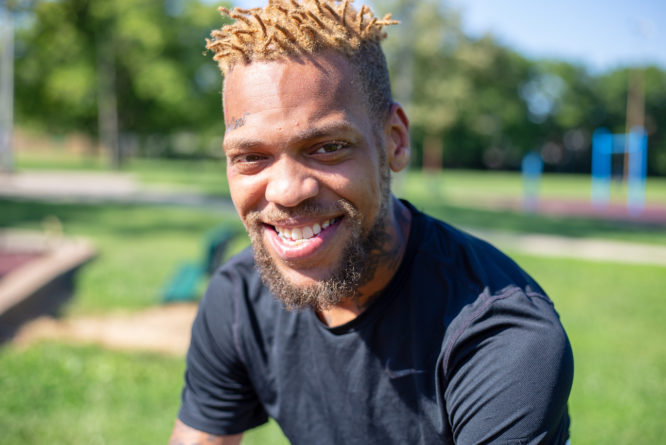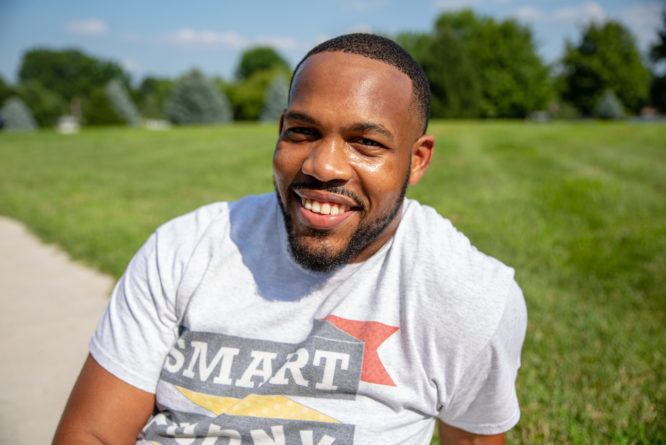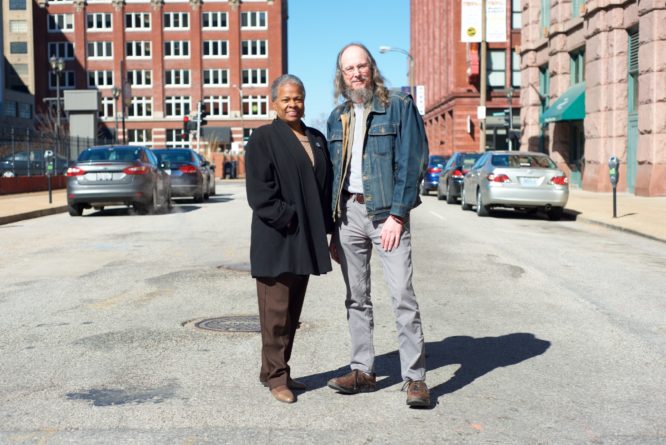I had a lot of different issues with deciding to go into law enforcement. Especially with the history of my family telling me about when they were growing up under the time when law enforcement officers were not very kind to minorities. They basically had no rights. So, when I told my dad I wanted to be a police officer, he wasn’t too thrilled about that because he thought the police were oppressors as opposed to actually helping people. During his time growing up, that’s what he experienced. I would expect him to have that view if that was the only view that he saw. I was trying to explain to him not all policemen are like that and that that was, unfortunately, a time period he grew up in. Life was different. I’m not saying it’s better. It’s still there to some degree, but it’s nowhere close to what he experienced.
If we are ever going to change some of those views and images of how people view us, people like myself need to be involved in law enforcement so we can show another side of it and maybe be able to change some of the stereotypes that my dad had growing up.
I said if we are ever going to change some of those views and images of how people view us, people like myself need to be involved in law enforcement so we can show another side of it and maybe be able to change some of the stereotypes that my dad had growing up. It took a little while. It wasn’t an overnight thing to sell him on it. But once he saw how much I excelled at it — in terms of getting a lot of awards and accolades and him seeing me wear the uniform — I think he became proud of what I did. He told me he probably couldn’t have done it, but he knew if I put my heart to it, I could pretty much do whatever it is I wanted to. Now he’s different. I’ve been in law enforcement for 35 years. He was like, “Well, you know, you’re not going to stay long. You’re not going to like it.” Thirty-five years later, “Dad, what do you think about that now?” “Yeah, I think you kind of like it, don’t you?”
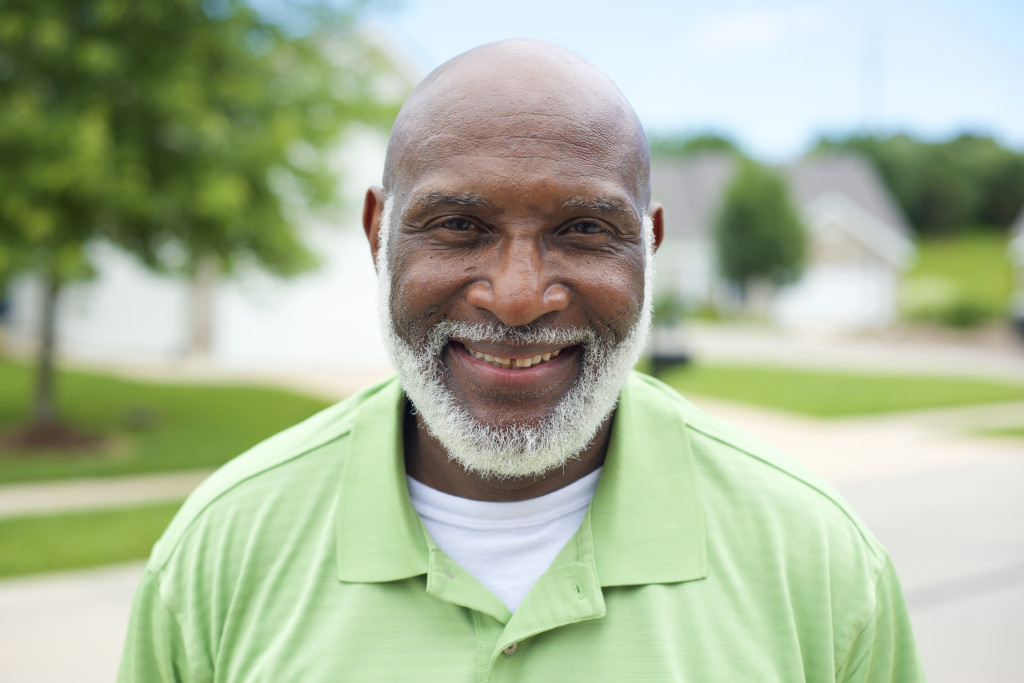
Commissioner Byron Watson, photos by Lindy Drew
It’s difficult having conversations with people that have pre-notions as far as what happened to Michael Brown. I don’t want to say who was right or wrong. I just know that on that day, tragically, a young man lost his life. There are still more questions that need answers. I mean, how do you go from jaywalking to being shot by the police? I’d like to know a little more about how that happened. What did they say to each other? What was the conversation about that lead to anger or for him to retrieve his policeman’s gun? I’ve been telling people to get off the street for 30-something years and I haven’t had to shoot anybody.
I bring to the Commission an open mind. I don’t have a side but I’ve lived both sides. I know what it’s like to be out there. I see what it’s like. I hear what they’re saying. I understand what they’re saying. They have trust in me because I’ve worn the badge. I’ve been to Vietnam. I’ve paid my dues. Therefore, they value my opinion because they know it’s not going to be slanted. They know if they’re wrong, I’m going to tell them. If they’re right, I’m going to tell them. I think that gives me credibility on both sides, and that’s what I’ve been looking for. Because once you anchor yourself to one position or another, somebody’s got to win or somebody’s got to lose. Or somebody’s got to be right and somebody’s got to be wrong. But if I consider myself credible, fair, and open to both sides, then I’m able to judge the information I’m receiving.
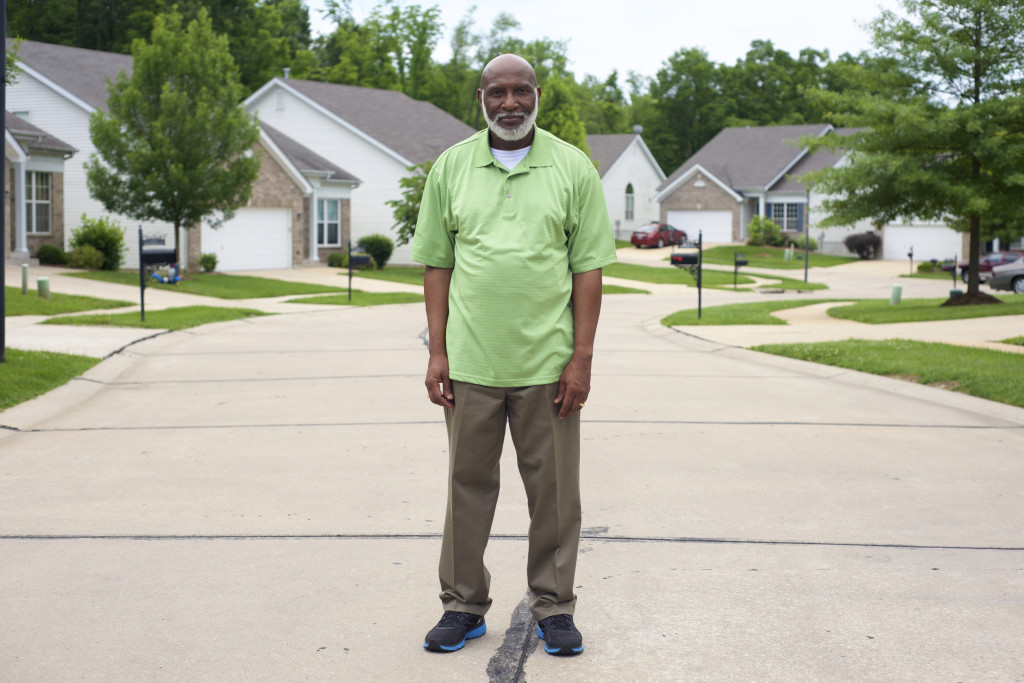
I know what it’s like to be a civilian as a young Black man growing up in St. Louis. We could not even go past the circle because the Jennings Police Department harassed young men like myself and didn’t want us going up to the shopping center. So, I’ve felt the racism. I’ve been a part of car stops. Even as a police officer, I’ve been stopped for no reason at all. Nothing was wrong with my car. I was driving down the street with my wife. Then, police lights. And I’m looking around trying to figure out, “What did I do?”
I’ve felt the racism. I’ve been a part of car stops. Even as a police officer I’ve been stopped for no reason at all.
I pull over. And I never identify myself as a police officer, the reason being I like to see how I’m going to be treated. So, when the officer drove up and asked for my driver’s license, I said, “No problem, Officer. Is there a problem? Did I do something wrong?” “Don’t get smart with me!” “I’m not getting smart. I just asked a question. You pulled me over. I think I have a right to ask what’s going on.” “Well, let me just see your license.” So, it was this sort of arrogance. I know what that feels like because it’s happened to me. I think that people deserve courtesy. If you want police officers to be respected, then there’s nothing wrong with you telling me why you stopped me. Matter of fact, I think it’s required that you tell me if I ask. So, I just allowed him to take my license. When he came back, I know he ran it to see if I was wanted and check if I had any outstanding warrants.
He handed me my license and I said, “Officer, are you going to let me know why you stopped me?” He said, “Why are you wanting to know why I stopped you?” And I said, “Because I’m a police officer and I think I have a right to know.” And his whole demeanor… if he could have just disappeared and went to a different planet… the look on his face was just profound. His next question was, “Well, why didn’t you tell me?” I said, “Why does it matter?” It was a teaching moment for him because you never know who you’re talking to. I always want police officers to know they don’t know who they stopped and they must treat people as if they’re the President of the United States because he might be. Or, he might be related. You better treat them with some sort of kindness.
I take those opportunities to teach officers that we’re no better than anyone else. The only thing that makes us different is when we put that uniform on and we put that badge on, we’ve taken an oath to protect the Constitution and the laws and the state of Missouri.
The officer apologized and was really embarrassed. He said, “Why did you do that?” “What do you mean? What did I do? I’m just a citizen. I’m in plain clothes right now. You stopped me, I asked you why, and you basically blew me off. That was your decision. I didn’t have anything to do with that. Had I been a police officer, would you have done that differently?” “Well, I probably wouldn’t even run your license.” I said, “Why not? There are just as many crooked police officers out there as there are citizens. I could be one of them. If nobody ever ran my license, I could ride around for years without warrants as a policeman. So, you mean to tell me policemen have a different standard than the citizens have here? You wouldn’t even run my license if I was breaking the law?”
I take those opportunities to teach officers that we’re no better than anyone else. The only thing that makes us different is that when we put that uniform on and we put that badge on, we’ve taken an oath to protect the Constitution and the laws and the state of Missouri. After that eight-hour shift, I take that uniform off, I come home, and I’m Melissa’s dad, I’m Marie’s husband, and my mom and dad are still mom and dad.
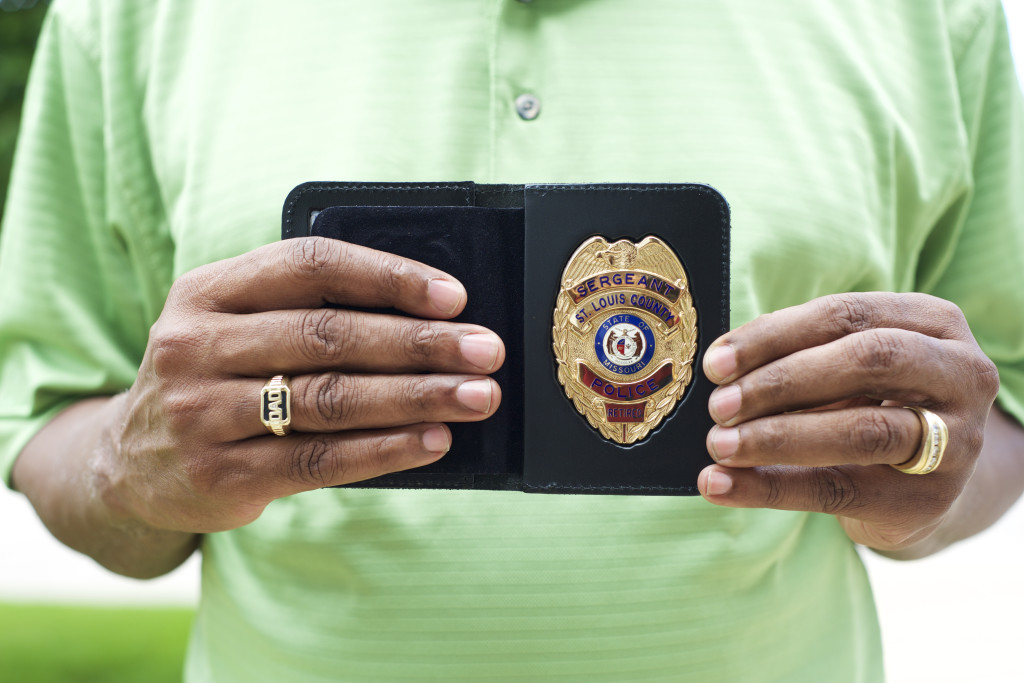
After work they’re always like, “C’mon, let’s hang out!” And I tell them, “I don’t hang out with policemen.” Oh, yeah, if you have a wedding or something going on that’s really special, your kid’s graduating from school, I’ll be there. “To go to a bar and just drink with you? No, I have no intentions of doing that.” “Well, why don’t you want to hang with us?” “Because I don’t want to become you.” Because hanging creates an ‘us against them’ mentality. That we always have to eat together, drink together, and go out together, and we only hang with cops, we only talk with cops, we only marry cops.
Ya know, we have this — I don’t know what you call it — but in our own minds we feel like we’re better than other people. And I don’t ever want that to happen to me. So, I drink and hang out with everyday common folks. I go out with people who don’t have high school educations. I go back to the hood where I grew up and talk with the crack heads. It keeps me balanced. One thing policemen have to be careful of is that they forget what it’s like to be on the other side. You have to stay in touch with your roots. You have to not forget where you came from. So often, when we think we got to a point where we’ve arrived, we don’t reach down and try and grab other people up with us. Instead, we talk about them and look down at them and call people criminals and thugs. It’s easy to do that.
So often, when we think we got to a point where we’ve arrived, we don’t reach down and try and grab other people up with us. Instead, we talk about them and look down at them and call people criminals and thugs.
But if you want to try to get a relationship with that thug, if you want to try to change that crack head, if you want to try and impact the drug dealer, you’re going to have to get out your arena. You’re going to have to get out of your perfect bubble and maybe learn why he got to where he is at. There could have easily been a reason why. That could have easily been any of us. We could have, unfortunately, made the wrong choice, hung out with the wrong guy, been in the wrong car at the wrong time and the wrong place.
We have a lot of people in jail. Not all of them are bad people. Some of them made bad decisions. And then we have criminals. But we also have a lot of people — and this is the part that policemen can’t seem to buy into — who just get caught up. They get caught up because of a lack of education. Because they want the same things everyone else in life has: a car, a house, a family. But through their own actions, they didn’t go to school. As a result, they tried to make the fast money and they got caught up.
Staying balanced allows me an opportunity to stay grounded in where I came from. A lot of police officers tell me they can’t bring themselves to go down to talk with the thugs. They can’t do it because they despise them. They hate them. I say, “When Jesus was underserved, he didn’t spend a lot of time with the good folks. He spent time with prostitutes, drug addicts, and drunkards. Just go through the Bible. His whole life on this earth was serving people. He wasn’t serving people who didn’t need him. He was serving people that did need him.”
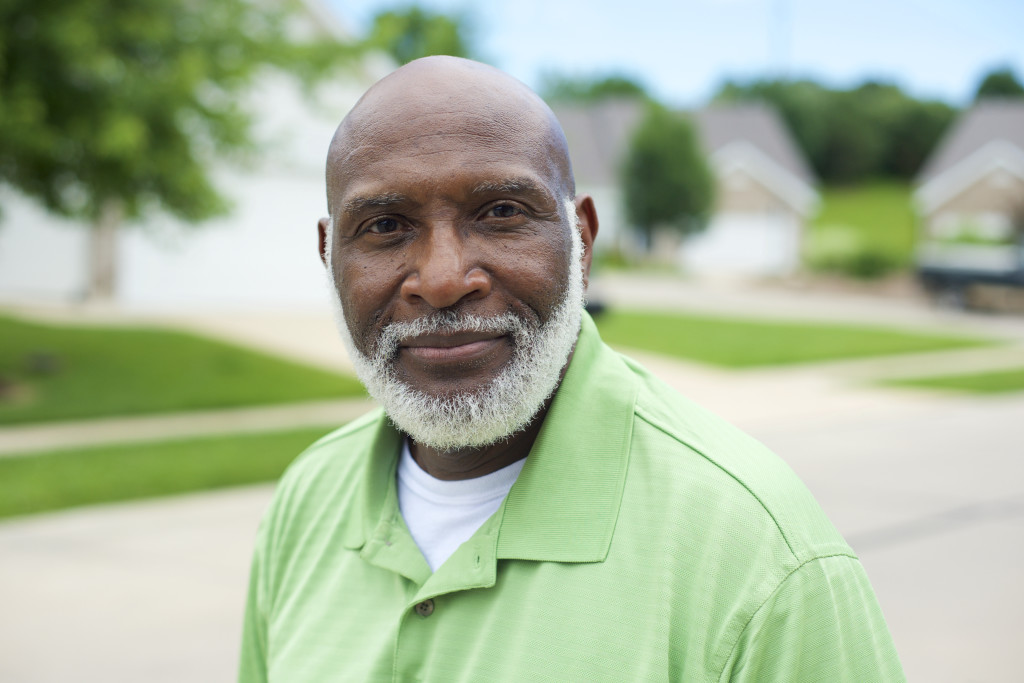
They want a safe community just like anywhere else… How will we ever fix it? It’s not going to fix itself.
People want to know, how do we change relationships between the police and the citizens? Well, first you need to break down this blue wall that divides us. The blue wall has become such a hindrance. They got this code in the hood — snitches get stitches. In other words, if I were to talk to a policeman about something that happened in my community, I would be retaliated against by the people in that community because I’m talking to the police. But the only way you’re going to rid your community of problems is to cooperate with the police so that we can get the people doing the things causing good people to get caught up in the middle of all of this. We have a lot of good residents in Ferguson. Not all of them are criminals. There are some people that are not there by choice. They’re stuck and can’t leave. If they could, they’d move. But they’re there.
They want a safe community just like anywhere else. But if they’re so afraid to talk to the police about what they know is going on in their community, how will we ever stop it? How will we ever fix it? It’s not going to fix itself. Because when the police don’t have the help of the citizens and the citizens don’t have the confidence and trust in the police, the only thing that benefits from that are the criminals. That’s why our crime rate is where it is today, because criminals are going unchecked. There is no gatekeeper. There’s nobody there to cooperate with the police.
We had a shooting in Spanish Lake recently. A young boy was standing outside and a car drives by and shoots him dead in the middle of the day at four o’clock. The whole neighborhood is full of people. Police came out and asked, “Did anybody see anything?” Not one person. Everyone said, “No.” I find it very difficult to believe or understand how people expect the police to solve these crimes or get the people who would be cruel enough to shoot an 18-year-old boy when he stood on his porch in broad daylight. If he’ll do it to this 18-year-old boy, what do you think he’ll do to you? This young man needs to be off the street and the only way we’ll get him off the street is with cooperation.
The code of the street is you don’t talk to the police. How do we break down that wall? If we want the citizen to help us, we have to be the first to break down the wall because they’re not going to come to us.
We asked for the color of the car. “We didn’t see the car.” A lot of that is the fear of the neighborhood. When you live in poverty, when you live in those areas, you know you can’t leave and move out. If you’re known to talk to the police, if they can’t get you, they’ll get your family. If we want the citizen to help us, we have to be the first to break down the wall, because they’re not going to come to us. If we’re waiting for the citizens to all of a sudden have a change of mind, especially in those areas, we’re going to have to come to them. We’re going to have to establish a relationship with those communities.
I look at it like a bank account. One of the biggest problems in Ferguson I saw was that they had done no investment in Canfield. The only time the Ferguson Police Department came to Canfield was to lock somebody up or issue some sort of a summons. It was always some sort of enforcement or arrest or something. It was never to go in and get to know who lived there. It was never to play basketball or get to know the young people. So, when this thing blew up, they had no allies in that area to come up and say, “I know Darren Wilson. Darren Wilson is not who you say he is.” Nobody. Not one person in that entire neighborhood. As a result of that, this is why this thing snowballed. They had no capital. There’s a lot of Canfields in St. Louis that are simmering as we speak. And all it takes is a match to light it off.
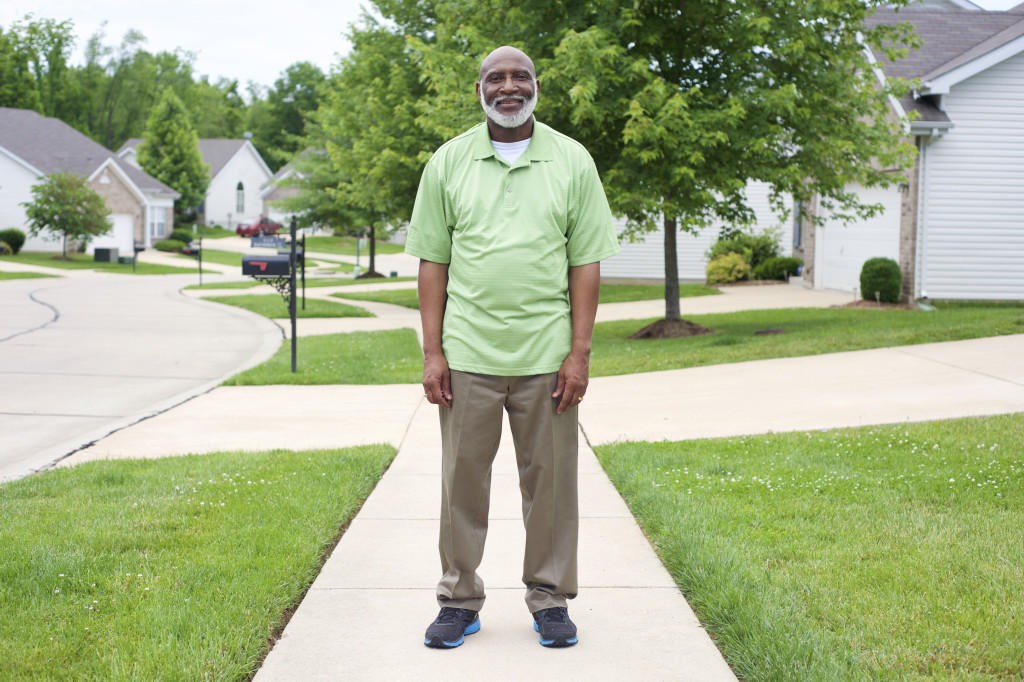
This thing actually has a name now. It’s called The Ferguson Effect. The Ferguson Effect has now spread to Cleveland, New York, and Baltimore. The younger generation asks a lot more questions than we did. They’re a little bit bolder than we were. The things they are saying to policemen in my wildest dreams I could not think of saying. I couldn’t even say it today. It just wasn’t done. You just didn’t say it. If a policeman asked you to do something, you did it. It was just the way you were raised. You knew it was wrong. Even if you did not want to do it, you did it out of fear as opposed to respect. Now the young people don’t have that fear of the police, which causes them to get more emboldened. This causes them to say things to police officers that further divides us and make police more emboldened in their position of us against them.
If we’re ever going to make waves with this, and I’ve talked to several police officers, we’ve got to clean our own house. We all know who the bad cops are. We work with them every day.
If we’re ever going to make waves with this, and I’ve talked to several police officers, we’ve got to clean our own house. We all know who the bad cops are. We work with them every day. And there are several of them. With that being the case, we owe it to the citizens who we swore to protect to expose them. Not only to expose them but to get rid of them. The problem that police officers have with being whistleblowers is the same problem that the citizens in the slums have with being a snitch. If you’re in the hood and you talk to a policeman, you’re considered a snitch and then something bad happens to you. Like, your home is firebombed. As a police officer, after you come forward, you have to go back into that environment where you just exposed another police officer in. And that police officer’s friend could now be your backup on the next call. And he might not get there when he probably should. Or you’re out on a traffic stop and he’d get there, but just a little slower.
You open yourself up and your own family for something happening to you just for doing what was right. We have to create some sort of safe zone for our citizens and police officers to be able to speak out without fear. How do you do that? I don’t have the answer. But the only way you’re going to rid your community of criminals and your police departments of bad cops is that you’ve got to have a safe zone for whistleblowers. Once they tell on a policeman, your career is done. Nobody will ever trust you. You might as well just pack up and leave.
The only way that you’re going to rid your community of criminals and your police departments of bad cops is that you’ve got to have a safe zone for whistleblowers. Once they tell on a policeman, you’re career is done. Nobody will ever trust you. You might as well just pack up and leave.
I’ll never forget this one call we had. We were in a house and I was the assisting officer. The other officer was trying to calm everybody down and he called a man a nigger in front of me. Being a professional, I did not outwardly react. But, inwardly, it bothered me because I had never heard him say that. I didn’t know if it was a slip of the tongue or what. I liked the guy. We were friends. So, when I heard that, it was like, “Wow, where was that coming from?”
After the call was over, I asked him to come see me. We pulled up next to each other and I said, “Hey, we’ve known each other for a long long time. I know you got kind of heated back there and I know we say stupid things. But is that how you feel? Where did that come from? Because I had never seen that side of you and I’ve been on many calls with you.” He said, “Byron, I’ll be honest with you. I was so embarrassed when I said it because I looked at you and saw that look on your face. I just wish I could have disappeared. I knew it was wrong. I know I shouldn’t have said it. And I can assure you I’ll never do it again because the look on your face told me how bad it must make people feel. I really didn’t get it. I didn’t. I didn’t even look at you that way. I looked at you as a police officer.”
I said, “You look at me every day and you don’t see the color of my skin. You see blue, you don’t see Black. But, when you said what you said, you actually saw Black for the first time. And it resonated on my face and yours that we’re not all blue. We’re like a rainbow. We’re all different colors and come from all walks of life. You always have to be cognizant of what you’re saying, what you’re doing, and who you’re saying it and doing it to.”
I believed I changed that young man. I’ve seen him madder than a hornet, and he never said that word again. He may have used it outside of my presence, but it was one thing he respected when I was around. He never used that word again. So, can people change? I think they can.
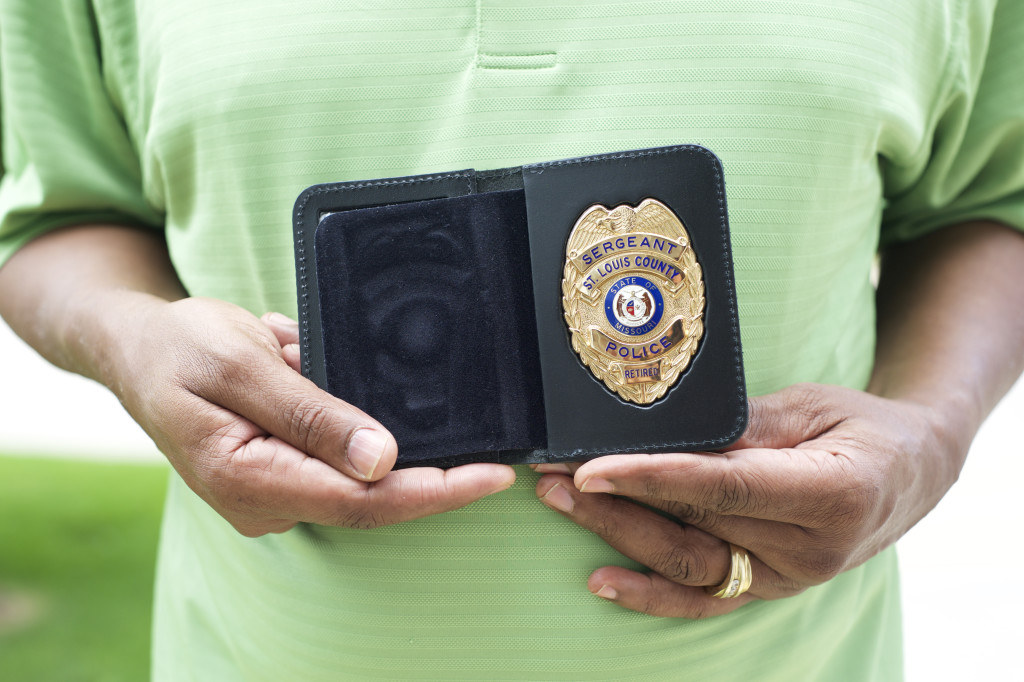
“A lot of people feel like the police officer’s voice is missing. What makes you feel comfortable to step forward to be that person? Why is the voice missing and how do we get that voice to appear?”
There are more people out there like myself, but they don’t have the courage. Not that they’re scared, but it takes courage to step out of the comfort zone because you’re going to be judged and have some people who may not agree or like you for doing what you do. Most of us like to be liked, but I’ve gotten to the point in my life where I’m 60-years-old. I like who I am. Whether you like me, hate me, or love me really doesn’t change me. That’s your opinion. I’m able to step outside of my comfort zone because I have that courage and confidence in who I am. I know that the people who may not like what I’m saying or doing may not affect me in the same manner as it will affect another officer.
I spoke out like this while I was a police officer and when I would see something wrong, I would point it out. When I became a supervisor, I wrote more policemen up more than any supervisor. It’s because right is right and wrong is wrong.
I spoke out like this while I was a police officer and when I would see something wrong, I would point it out. When I became a supervisor, I wrote more policemen up more than any supervisor. It’s because right is right and wrong is wrong. There are some who think policemen can do no wrong. You can come in with videotape and say, “This is what a policeman just said,” and someone else may say, “It was doctored” or, “That can’t be my policeman.” There are other policemen like myself, but I think they’re waiting to see what happens to me.
When I became a commissioner, people wrote me saying, “Byron, we’re so glad to see you on the Commission.” There are a lot of good policemen out there who would give their life in a minute, but they’re so afraid to speak out because that’s their job. I’m retired now so I can speak out a bit more whereas before I was reserved on how far I’d go because I didn’t want to get fired. I need to be that voice for those people who can no longer speak because they are in that same situation I was in where they need their job.
I don’t know how we’re going to get them to come out as long as The Blue Line exists. The Blue Line has been here since before I was born. It’s been here since creation. It’s not going away. The same line that holds the bad in keeps the good protected, and that’s the problem. Whenever it gets to a point where those who are protected don’t feel protected anymore, that’s when you’ll see The Blue Line get crossed. It’s a tight group. It’s a tight family. It’s a fraternity almost. We’re that type of a group, all over. Policemen are policemen. Cops are cops. No matter if you’re a cop in Chicago or the cop that said, “Why didn’t you tell me you’re a policeman?” It’s an embarrassment almost for you to mistreat a policeman. It’s an embarrassment almost for you to not help their family. That’s why you see their funerals five and six miles long. Who else has funerals like that? Nobody, other than heads of state. Everyday common people? No, they don’t have that.
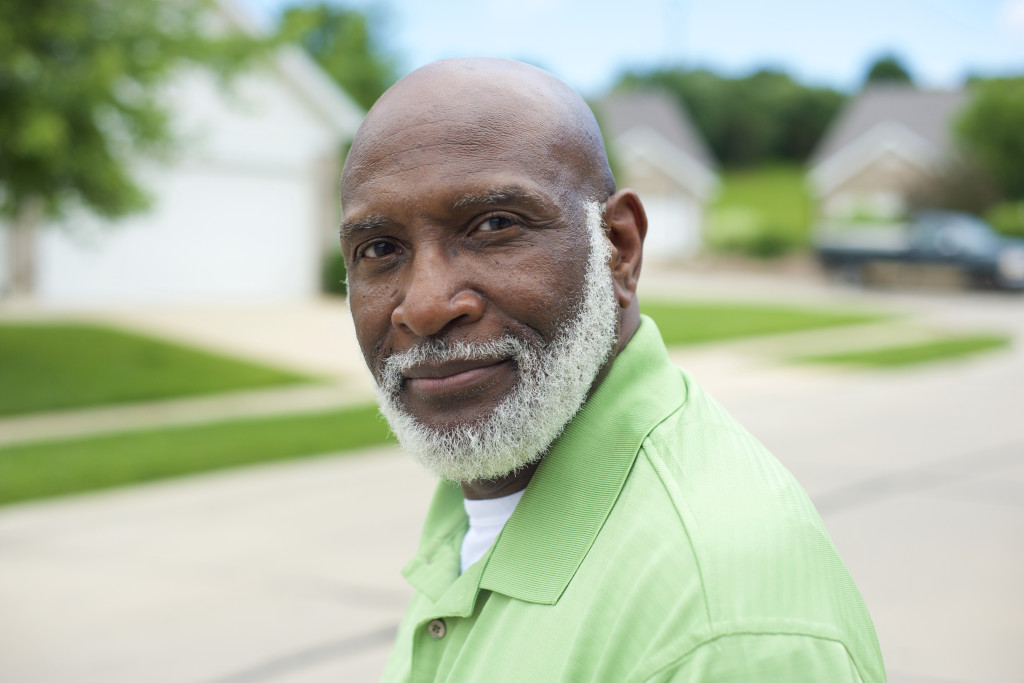
St. Louis is one of the most segregated cities in the country for its size and population. Some of the segregation is done not by design but by comfort. And I don’t think people want to live just with one group. If you really wanted a well-rounded child, you would want that child exposed to all kinds of people. My bunkmate in the military loved country and western music. I hated it. When I’d hear the first twang, I’d go crazy. He loved it loud, and I loved my soul music loud. So we were just blasting each other out. I learned over six or eight months, I started liking country and western.
People for some reason, have looked to the Ferguson Commission in a different way than I’ve never seen people look at any commission that we’ve had here in St. Louis.
I laugh about it now because I hated it so much. It’s all about what you’re exposed to. It was a preference. I just didn’t like it because I didn’t understand it. Country and western is like a blues. He broke it down for me. It tells a story. Listen to the words. And I really started to, like, ‘Man, that’s pretty cool.’ And it’s amazing how he took to my music once I started explaining to him where its culture and history came from, and why we sing the blues. We both came away from that with an exposure and experience that had we lived apart, had we been in our little segregated part of this country and never got together, I probably would still hate country and western. When you’re in that foxhole and people are shooting over the top at you, you don’t care if they’re black, green, blue, or yellow. You just want that man to shoot just as well as you and be able for you both to go home safe.
People for some reason, have looked to the Ferguson Commission in a different way than I’ve never seen people look at any commission we’ve had here in St. Louis. When I tell somebody I’m a Ferguson Commissioner, almost invariably after, they ask, “How are things going? What do you think is going to happen?” They look at us differently, like we’re the saviors of the city. “If this doesn’t work, if you guys don’t get this fixed, what’s going to happen to us?” The amount of pressure we sometimes feel from the police, the politicians, the citizens — that these 16 people from all walks of life are going to be able to come into something that’s probably longer than any of us have been living and — that we are going to have THE answer… It’s not going to be THE answer. It’s not going to be solutions. It’s going to be recommendations. People are looking for hope. They need hope. I don’t know if we’re the ones to give that hope to them but, for some reason, we’ve been adopted by the City as the hope people are looking for to be able to make the change in St. Louis that we all have been wanting.

